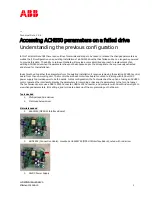
Chapter 31: Load Balancing
STANDARD Revision 1.0
C4® CMTS Release 8.3 User Guide
© 2016 ARRIS Enterprises LLC. All Rights Reserved.
891
Overview
Load Balancing prevents any one channel from becoming overburdened so long as excess capacity is available on another
reachable channel. The objective is to balance loads across channels of a load-balance group. Depending on the
circumstances, different mechanisms are used to move a modem to the desired channel(s).
During the modem's initial channel assignment process, an upstream channel override in the range response message
may be used to direct a modem to a different upstream channel.
Immediately after the modem's registration process, DCC may be used to direct a modem to a different upstream
and/or downstream channel.
During the channel bonding process, load balancing data (channel load) may be used to select the least loaded
channels for the modem's RCS and TCS.
Periodically, either DCC or DBC may be used to direct a modem to dynamically change its upstream and/or
downstream channel(s).
Load Balancing Groups
General Load Balancing Group (GLBG)
A general load balancing group (GLBG) represents the set of upstream and downstream channels which reach a single fiber
node. In this arrangement, a CM connected to the fiber node would be able to tune to any (or possibly all) of the channels
in the general load balancing group. Since the CM may be associated with only one MAC Domain at a time, only the
channels associated with the same MAC Domain may be used simultaneously.
General load balancing groups are calculated by the C4/c CMTS when the fiber node command is entered with MAC
Domain channels. The C4/c CMTS will automatically create a general load balancing group for each MAC Domain-Cable
Modem-Service Group (MD-CM-SG).
The DOCSIS 3.0 specification restricts both general and restricted load balancing groups to a single MAC Domain cable
modem service group (MD-CM-SG). A general load balancing group is automatically created (but not provisioned) by the
C4/c CMTS to correspond to each MD-CM-SG so general load balancing group provisioning is not necessary.
















































